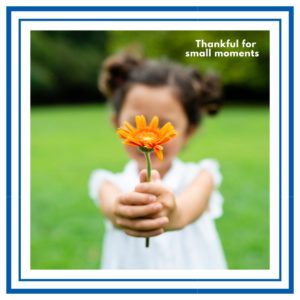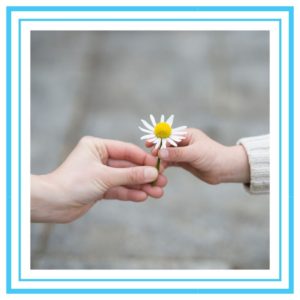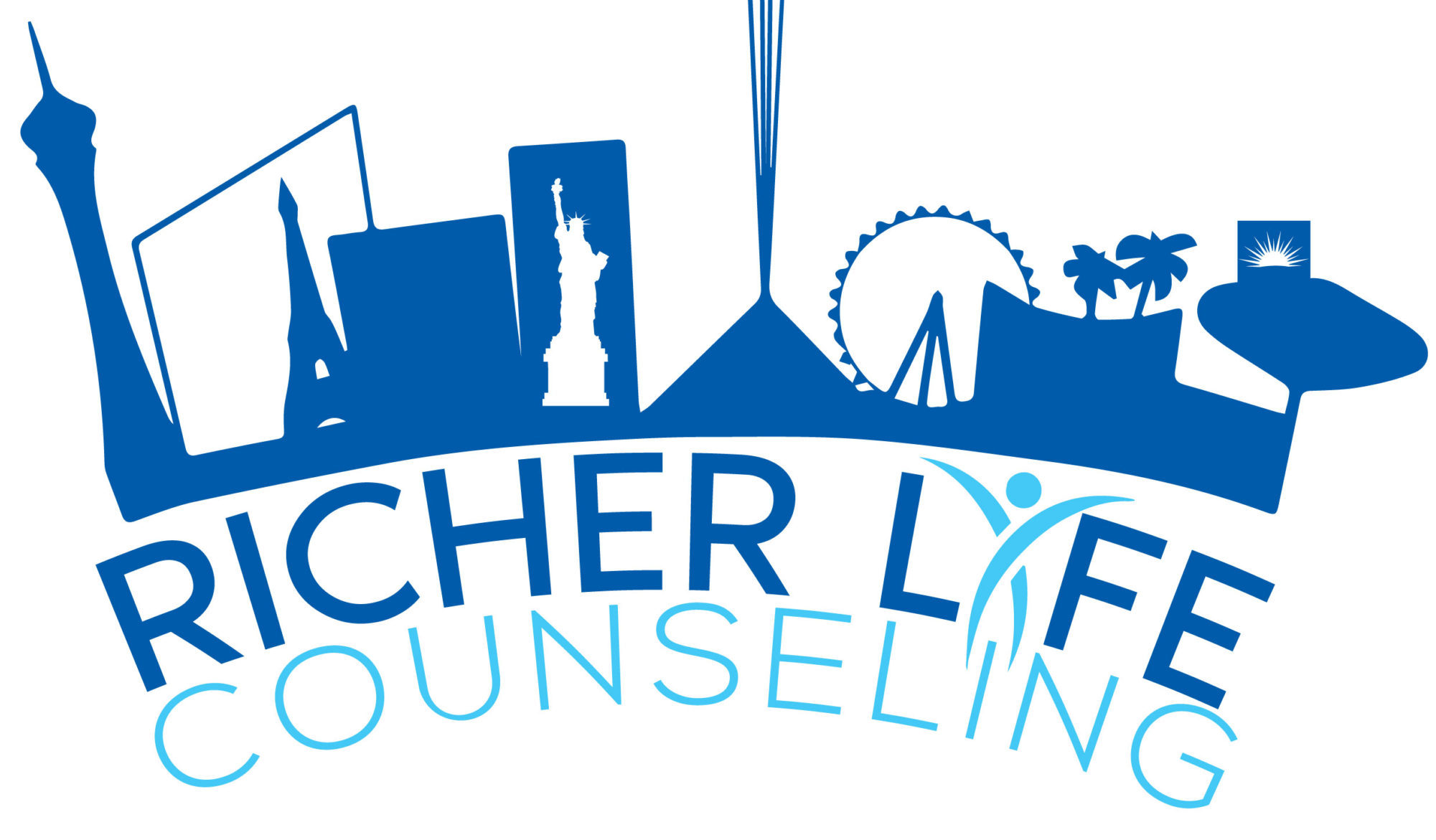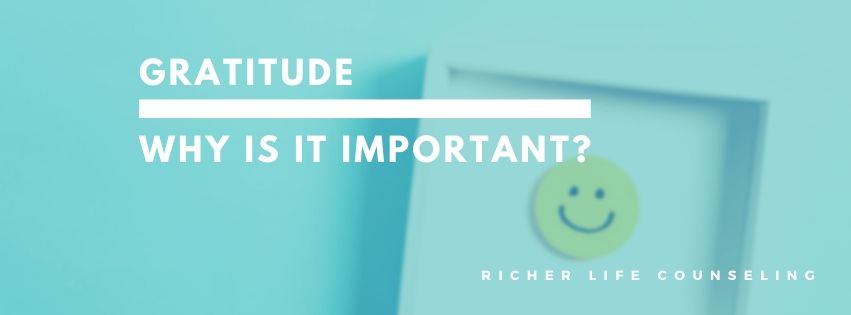It’s not just for November
It seems like I never hear the word “gratitude” unless it’s Thanksgiving. I wonder, do we–people in general–truly mean what we’re saying and does it even matter? Recently, I’ve come across several articles and studies that demonstrate the positive, if not powerful effects of expressing gratitude in all areas of life and I became curious.

It was Ralph Waldo Emerson who said, “Cultivate the habit of being grateful for every good thing that comes to you and to give thanks continuously. And because all things have contributed to your advancement, you should include all things in your gratitude.” I think the first three words “cultivate the habit” are important because this is something we need to develop, continuously work at, and once established, nourish so it can be maintained.
What’s the definition of gratitude?
Derived from the Latin word gratus, it literally means grateful and thankful. Gratitude is an emotion that helps me recognize what others do for me and it makes me feel happy. It was Zig Ziglar who said, “Gratitude is the healthiest of all human emotions.” “Psychologists have defined gratitude as a positive emotional response that we perceive on giving or receiving a benefit from someone” (Emmons & McCullough, 2004). Religious leaders and philosophers have long known the importance of gratitude but a modern psychological view is how gratitude can improve one’s well-being and relationships.
What are the benefits of gratitude?

Here are some ways gratitude is beneficial:
- Improves mood – feel happier
- Decrease in anxiety
- Decrease in depression
- Increases positive thinking
- Regulates stress hormones
- Improves sleep
- Reduces pain
- Work efficiency
Studies show that employees who are grateful are more committed, productive and efficient. When leaders express their gratitude to employees, they become more committed and teams become more cohesive. Focusing on positive emotions allows us to cope more effectively with negative emotions. There is a correlation between gratitude and resilience. For more reading and gratitude activities for kids, click here
If you would like to dive deeper into learning more about neurotransmitters and the social psychology aspect of gratitude, click here.
You may be asking, if gratitude is so powerful, what can I do to jump-start the effects?
Start a gratitude journal or log and write about who you might be grateful for and why. Write about yourself–yes, it really is okay, if not essential, to think and speak kindly to yourself. Gratitude is about appreciation for what you have and not a comparison to others. You may recognize that someone perhaps has more difficult struggles than you do, but recognizing and appreciating what you have is the essence of gratitude. You can focus on a talent or trait that you appreciate possessing. If you’re a good artist, appreciate that talent. If you’re good at math, appreciate that knowledge.
Gratitude in Relationships.

As for relationships, you could start a journal between you and your partner, sharing with each other words or actions for which you feel gratitude. If not a journal, write them a note. Sometimes you have to be the one who initiates this action, particularly if your relationship is strained, but it’s worth it if the goal is to improve it. You could also start a gratitude jar. Each day write down something or someone you appreciate.
American researchers assigned one group of young adults gratitude journals and another group of young adults were assigned to journal what annoyed them. The results were clear. Those assigned gratitude journals were more determined, optimistic, were more enthusiastic, and had greater energy than their “annoyed” counterparts. If you would like to read about additional studies, click here.
Gratitude Challenge
I decided to challenge myself over the last week and chose a specific area on which to focus. I chose nature/the outdoors. Having lived in places I viewed as far more beautiful, I came to realize I felt a lot of pain living in the desert. I’ve been known to say, “I hate living in Las Vegas.” Pretty negative, right? So again, I challenged myself. I started to make time to observe sunrise and sunset and really thought about them and saw their beauty. I felt an appreciation for them. I felt gratitude for being able to see them, which in turn ended up making me appreciate that my vision is healthy. It’s a positive snowball effect. Even socially, gratitude can be contagious. It’s a great feeling when someone expresses kind words to me, or does an act of service, which in turn makes me want to do the same–not out of obligation–but because it’s rewarding.

Speaking of rewards; feelings of gratitude affect the brain, releasing dopamine, a feel-good, “reward,” neurotransmitter. The result? We feel better! When our brain feels the effects of dopamine, the brain thinks, “Yes! I want to do that again! That felt good!” Gratitude just might be the best, a natural antidepressant that we can access for free. Ultimately, one can have overall healthier well-being and quality of life.
Your Gratitude Challenge
As Emerson said, “cultivate the habit”. It’s like a muscle that needs to be exercised. It will take practice and effort, but in time, you’ll feel the positive effects. It may be that your relationship with a spouse, partner, or child turns around for the better, or that you see yourself in a more positive light. It may be that you can drop the word hate when describing where you live. If you’re reading this, I challenge you to spend one-week expressing gratitude, in written or verbal form, to yourself, partner, child, friend–whomever you choose. Perhaps all of the above. If you’ve ever just asked, “why can’t there just be a pill that makes me feel better?” gratitude may just be the “pill” you’re needing. I challenge you to give it a try after all, what do you have to lose?
If you’re struggling and thinking, “this is a good idea, but I need more support” then call me today to schedule a session.
Contact us today by calling or texting 702-518-1546, email, or booking a session by hitting the appointment request button. We can normally get you into a session within 24 or 48 hours.
We offer both online therapy (learn more about online therapy here) and in-person therapy at our Las Vegas office. Our office is located in West Las Vegas right off the 95 & Rainbow. Our address is 222 S. Rainbow Boulevard | Suites 113-114 |Las Vegas NV 89145
- What Is Your Banana? - August 10, 2021
- Premarital Counseling - June 24, 2020
- Why Therapist Ask: How Does That Make You Feel? - June 2, 2020

